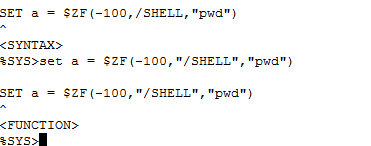Forgive my lack of understanding, but I am working on a vendor created Cache database and the indexes specified in the classes for ODBC connections are not working. A few of them are created, but of the 50+ classes we have, only a handful of them are created when the class is compiled, yet no errors occur.
Example 1:
.png)
Example 2:


